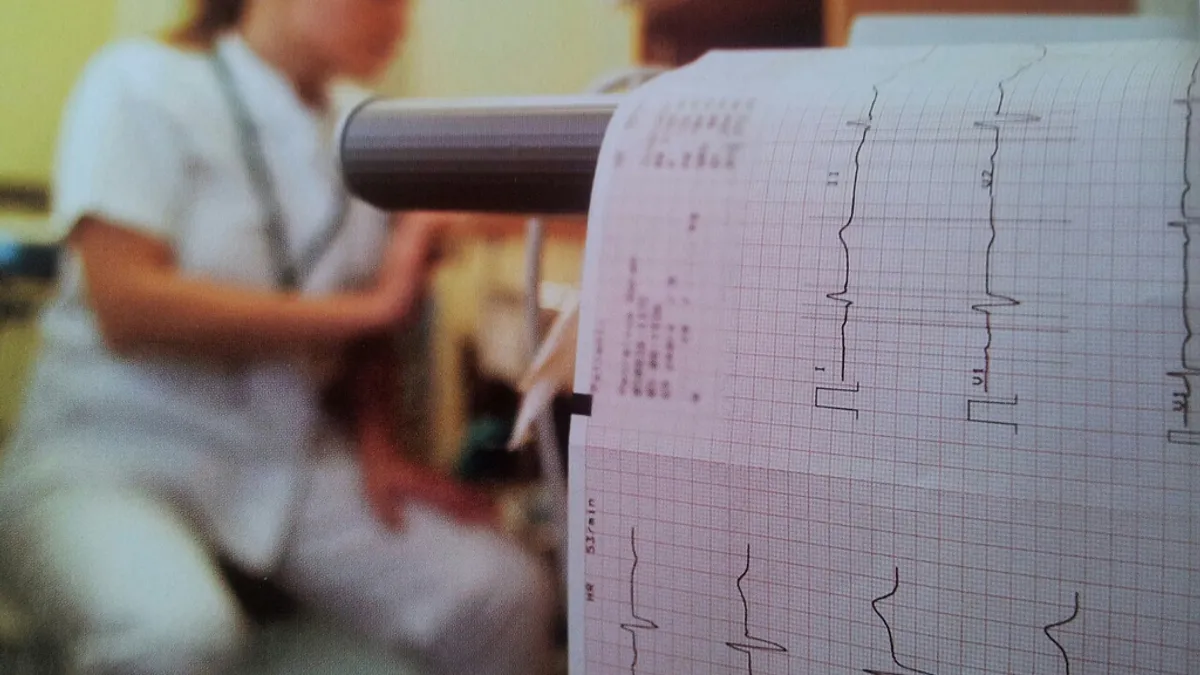Dive Brief:
-
Researchers have presented preliminary data suggesting Abbott’s experimental diagnostic i-STAT TnI-Nx can rule out acute myocardial infarction (AMI) at the point of care.
-
Reliable point-of-care tests could replace laboratory tests used today, cutting the time taken to provide results and expanding access to AMI screening to rural communities.
-
However, the Abbott-funded study was relatively small and had other limitations that make it hard to draw concrete conclusions from the data it generated.
Dive Insight:
Many patients who present at emergency departments with symptoms of AMI, the medical term for a heart attack, will prove not to be suffering from the cardiovascular event when diagnostic tests are run. However, the blood test component of AMI investigations takes time. Blood is taken from the patient, sent to a central lab, centrifuged and then tested for cardiac troponin. While that is going on, the patient is taking up resources at the healthcare facility.
Abbott, which makes the lab-based test, wants to cut the time needed to rule out AMI to 15 minutes and thereby enable healthcare providers to investigate and discharge patients faster. Tests from Mitsubishi Chemical and Quidel perform comparably to lab-based assays at diagnosing heart attacks, but their precision at low concentrations makes them less suited to quickly ruling out AMI.
To assess if Abbott’s test, which runs on its i-STAT device, performs better in that context, researchers in New Zealand analyzed samples taken from 354 patients who presented at the emergency room with symptoms of AMI. Abbott performed the tests and shared the data with the researchers.
The analysis found Abbott’s point-of-care test was as good at ruling out AMI as the lab-based assay. The experimental test correctly identified 201 patients as being at a low risk of experiencing a heart attack. The established lab-based assay delivered comparable results.
The findings offer encouragement for Abbott but fall well short of providing conclusive evidence that its test can rule out AMI in the real world. In the study, the point-of-care test used plasma, not the whole blood samples it will need to analyze to deliver results in 15 minutes. The test will need to be done at the bedside to truly evaluate its accuracy, speed and cost-effectiveness.
Abbott VP Matt Bates said the initial findings “will help guide our research and development of the next generation of cardiac testing."










